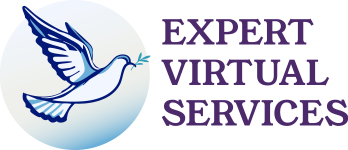Entrepreneurs know that Calendar Management is a necessary part of how you plan your day. You have client meetings to schedule, follow-up phone calls to be made, as well as an assortment of other tasks that are part of managing your business. A quote says, “If it’s not on the calendar, it doesn’t exist.” So if it doesn’t exist, then it won’t get done! This is an accurate statement for most people because it’s easy to forget what you need to do if you don’t make a plan to do it. You can tell yourself, “Tomorrow, I am going to work on my content strategy,” but if you don’t block off that time on your calendar, chances are it will not get done.
The History Of The Calendar
Do you remember the old days before everyone had smartphones? Ladies carried a little book in their purses called an “appointment book.” Some men had these books, too, and usually referred to them as a “little black book” in which they kept phone numbers and appointments. They had a tiny calendar in them that you hand-wrote your appointments in it. These were pretty handy, except you had to remember to bring them with you. They were also easy to lose. And you had to remember to check your calendar, or you would still forget your appointments. People would usually write their appointments on wall calendars or desk calendars, so they were visible daily.
With technology, the smartphone came along with all sorts of useful apps. The calendar app is where people started setting their appointments. These were more convenient than the appointment books because most of the time, people carry their phones with them everywhere they go. Yes, phones can get lost. But if you use digital calendar apps such as Google Calendar, you can access it from your other devices as well. Digital Calendar apps can send you reminders and alerts, so you don’t forget your meetings. You can stick the link to your zoom call right in your calendar, then just click the link when it’s time for the call.
The paper planners also became popular among entrepreneurs, particularly women. They have a paper calendar inside, as well as customizable tabs and inserts. You can add a notes section for when you need to take notes. You can add to-do lists, shopping lists, address books to keep a record of all of your contacts. These were popular among creative women who liked to scrapbook or journal. You could use colorful pens, markers, and highlighters. You could even add stickers and other accessories. There are digital versions of paper planners available now, which ironically is like doing everything you would do in a paper planner, but electronically.
A Matter Of Preference
People are very picky about which type of calendar they prefer. These days, there are so many choices that it is indeed a matter of preference based on your work and your personality. So how can you tell which type of calendar will work best for you? Let’s take a look at the pros and cons to help you decide which is best for you.
Team Digital
If you are Team Digital, you are probably someone who has embraced technology in many areas of your life, not just your calendar. You may prefer reading your books on an e-reader instead of hardback or paperback books. You probably don’t like paper and clutter sitting out on your desk. Here are the pros and cons of using digital calendars and planners:
Pros
- You almost always have your phone with you. It’s easy to check your calendar that syncs across all of your electronic devices.
- You can set reminder notifications and alerts, so you don’t forget important events.
- You can set recurring meetings and tasks with reminders for things that you repeatedly do.
- Your phone (with your digital calendar) is small enough to fit in your pocket. You don’t need to find a pen to write things in your digital calendar.
- Syncs with your email, and you can set it to automatically put zoom calls in your calendar, including the link to the call.
Cons
- You may be annoyed and stressed by audible notifications and alerts (you can shut these off, but it defeats the purpose).
- We tend to ignore notifications on our phones and computers when we are busy. We may even shut off notifications when we are working and need to focus. So the pro of having a digital calendar can also be a con.
- You may deal with a dead battery or have to keep your electronic devices charged when it’s not convenient if you want to use your calendar on the go.
Team Paper
If you are Team Paper, you are probably creative and artistic. Perhaps you love to write, journal, and doodle. You enjoy the aesthetically pleasing look of color-coded lists and stickers, and accessories. You may also enjoy using your paper planner as part of your morning routine of list-making and journaling. Here are the pros and cons of paper planner calendars:
Pros
- There are science-backed reasons that paper planners are better than digital. Studies show that you are less distracted and have more focus without alerts pinging in your ear or pop-up notifications on your screen.
- For many people, writing things down helps you to remember them better, clarify your thoughts, and reach your goals sooner. If you are the type of person that still prefers to hand-write notes when you are in a meeting, a paper planner may be best for you.
- You get larger size pages than viewing your calendar on your phone or tablet screen. There is more room for you to write things in. And you can keep an archive and always go back and look at past calendar entries.
Cons
- You have to buy supplies like the planner insert pages, pens, markers, stickers, any accessories you want to use with it (which can add up to a lot of money).
- If you lose your planner, it’s gone. You can’t access it from another device like a digital calendar if you lose your phone.
- You can’t share your calendar with others on your team or your family like you can with a digital calendar.
Why Not Use Both?
If you are like most people, you will see the pros of both digital calendars and paper planners and realize where you can incorporate them into your own business and personal routines. Play around with it and see what works best for you. Don’t spend a lot of money on expensive organizers until you start using a less expensive one to see how you like it. You could use Google Calendar, or your preferred digital calendar, for time-blocking your day, updating your appointments and meetings, and sharing your calendar with those you want to see it. If it helps you see a visual of your calendar on paper, it doesn’t take long to write these items into your paper calendar. Try using your paper planner for writing lists, taking notes, and any other inserts that might be useful to you.
Which type of calendar method do you prefer? Do you use both?

